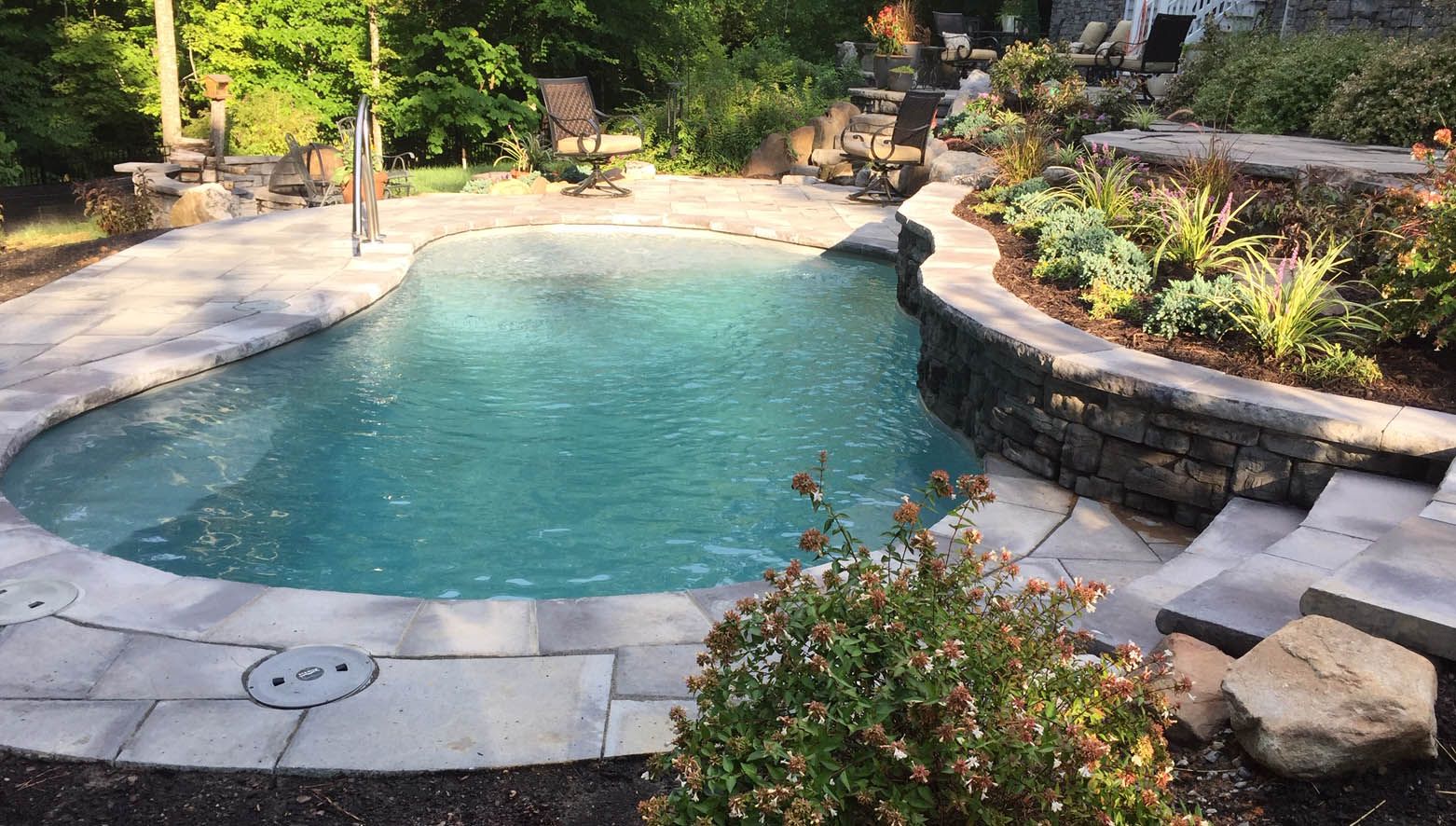When someone is considering the purchase of an inground swimming pool, there are many factors that will dictate whether they choose fiberglass, concrete, or vinyl liner. And although each type of pool has its own pros and cons, this article will discuss 5 main benefits to owning an inground fiberglass swimming pool.
5 Fiberglass Pool Benefits
1. Low Maintenance
At this point, it has become an accepted fact in the swimming pool industry that fiberglass pools are easier to maintain, especially when compared to a concrete swimming pool. For example, at River Pools and Spas we have installed over 600 pools in the Va/Md area and we've found the average customer spends less than 45 minutes a week maintaining their swimming pool—a far cry from what many people believe it takes to keep a pool pretty, clear, and clean.
2. No Sore Feet!
Have you ever tried playing volleyball in a concrete pool before? Well, chances are if you played more than 20 minutes you noticed how quickly the bottoms of your feet started to suffer.
Because a fiberglass pool has a smoother surface, it does not cause bloody toes and also doesn't harbor algae growth in all those little crevices like a concrete swimming pool.
3. No Liner Replacements, Acid Washing, etc.
Most vinyl liner inground pools have to have their liner replaced every 7–11 years, and sometimes this number is much worse. As for concrete pools, they often need at least an acid wash every few years, and many have to be resurfaced around the 15-year mark as well, which is a huge expense.
With a fiberglass swimming pool, these issues are not a problem.
4. Work well with Salt Chlorine Generators
Salt is all the rage in the swimming pool industry, as well it should be. But there is one drawback to this very low maintenance device—it's hard on concrete and metal surfaces.
In fact, many concrete pool builders do not allow for salt chlorinators on their pools because of its tendency to damage the plaster finish sooner—something that's not at all the case with a fiberglass surface.
5. Easy Installation
With a vinyl liner pool, the ambient temperature has to be a certain level for the liner not to wrinkle when installed. With concrete, rain and cool/hot temps can also wreak havoc. But with fiberglass, the installation is rarely affected by these types of uncontrollable acts of Mother Nature.
So there are 5 benefits to owning a fiberglass swimming pool, but to tell you the truth, I could have mentioned many, many more. Because of these benefits and others, fiberglass pools continue to explode in popularity across the U.S. and Canada year after year.

Questions or comments? Don't hesitate to leave your thoughts below.
Up Next:
Should You Buy a Fiberglass Pool? (Infographic)
What’s the Best Small Fiberglass Pool for Your Needs? Costs, Sizes, Features
Inground Concrete Swimming Pool Cost and Price Guide 2020
Editor's note: This blog article was updated on February 17, 2020.
Marcus Sheridan
Marcus Sheridan is a co-founder of River Pools® Virginia and a leading voice in the fiberglass pool industry, known nationally for his commitment to educating homeowners about inground pools. Over the past two decades, Marcus has helped thousands of families confidently navigate the pool buying process with transparency and trust. His straightforward, educational approach has helped make River Pools a go-to resource for fiberglass pool buyers across the country. When he’s not writing or speaking about pools, Marcus helps businesses embrace honest communication to better serve their customers.



